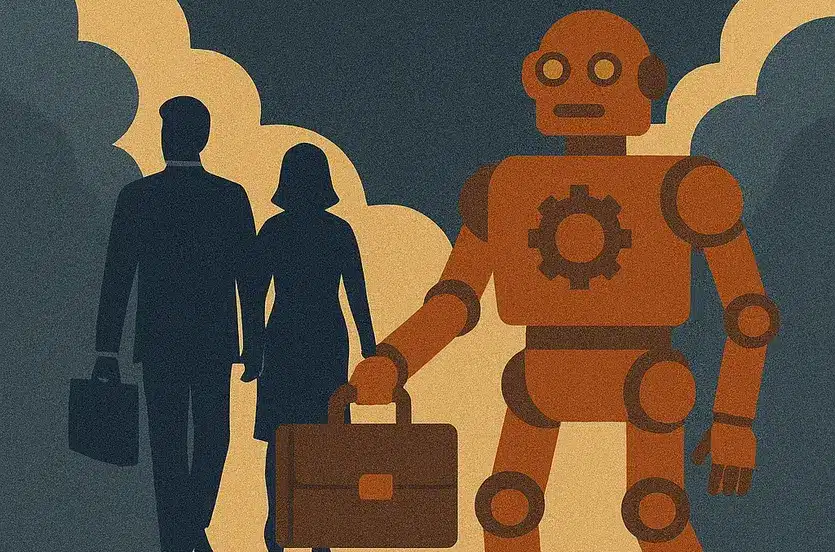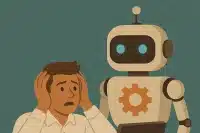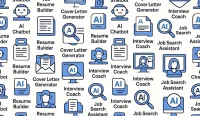In what many economists are calling the most significant workforce transformation since the Industrial Revolution, AI job displacement is rapidly reshaping global employment patterns. Recent studies predict that nearly half of all global jobs could be affected by artificial intelligence, with 40% potentially facing significant disruption or elimination. As companies eagerly adopt these technologies to reduce costs, the broader economic implications of widespread AI job displacement remain dangerously underexplored.
The Accelerating Reality of AI Job Displacement
The corporate pursuit of labor reduction isn’t new—companies have long sought to minimize workforce costs through downsizing, outsourcing, streamlining, and automation. However, recent advancements in artificial intelligence represent a fundamental shift in both scale and scope of potential AI job displacement.
Current Impact Assessment
- A new study predicts almost half of all global jobs could be affected by artificial intelligence
- AI could replace an estimated 300 million full-time positions worldwide
- Impacted sectors include previously “safe” fields like legal and engineering
- In one factory example, 9 robots replaced over 250 human workers
These statistics aren’t projections for some distant future—they represent changes already underway in today’s economy. Unlike previous technological revolutions that primarily affected manual labor, AI job displacement targets knowledge workers and service providers who previously seemed immune to automation.
Corporate Benefits vs. Economic Consequences
For businesses, the immediate financial benefits of AI adoption are compelling. However, the broader economic consequences of widespread AI job displacement create a paradoxical challenge for these same companies.
The Corporate Calculation
A recent survey of 697 companies conducted by Metrigy Research revealed alarming statistics about AI job displacement:
- Companies implementing AI hired 89% fewer agents than non-AI counterparts
- When AI was added to existing contact centers, 36.8% of companies laid off staff
- The average workforce reduction was 26.1% of employees
- These changes occurred within just one year in call centers alone
While these numbers demonstrate significant cost savings for individual businesses, they raise a critical question that echoes Henry Ford’s (somewhat mythologized) business philosophy: If AI job displacement continues at this pace, who will remain to purchase the products and services these companies offer?
The Emerging Two-Tier Economy
As AI job displacement accelerates, we’re witnessing the emergence of a concerning economic model where businesses increasingly focus on serving the wealthy while treating everyone else as disposable.
The Video Game Industry’s Prophetic Model
The video game industry, now larger than movies, music, and television combined, offers a troubling preview of this economic future:
- Free-to-play games generate massive profits through “freemium” pricing
- A small percentage of users (called “whales”) spend thousands or millions on in-game purchases
- The majority of users play for free, serving primarily as an audience for high-spending players
- This model has proven more profitable than traditional pricing structures
This approach—catering primarily to the wealthy while maintaining a base of non-paying users—represents a potential blueprint for how businesses might adapt to widespread AI job displacement.
🤖 Hiring in the Age of AI? Find Human Talent That Makes Technology Work Smarter
As automation reshapes industries, human strengths like creativity, emotional intelligence, critical thinking, and ethical decision-making are more vital than ever. WhatJobs connects you with candidates who excel at working alongside AI—enhancing innovation rather than replacing it.
Post your job openings and attract adaptable professionals who will lead in an AI-powered workplace.
👉 Post Jobs for Free with WhatJobsThe Luxury Market Explosion
Evidence of this economic bifurcation is already visible in consumer markets:
- Lamborghini has sold more cars in the last decade than in all previous company history combined
- Other luxury brands like Bentley, Ferrari, and Patek Philippe report similar growth
- Private jet usage, high-end hotels, and exclusive services are booming
- Meanwhile, real wages for most workers have remained stagnant for decades
This divergence reflects a fundamental shift: the value of human labor has plateaued while asset values have skyrocketed. AI job displacement threatens to accelerate this trend dramatically.
Explore income inequality data from the Economic Policy Institute
The Universal Basic Income Question
As AI job displacement intensifies, universal basic income (UBI) has been proposed as a potential solution to maintain economic stability.
Recent UBI Research Findings
A comprehensive study funded by Open Research (managed by Sam Altman of OpenAI) provided 1,000 financially struggling Americans with $1,000 monthly payments:
- Recipients earned less from employment than the control group
- Many used the income to reduce work hours and increase family/leisure time
- Mental health and food security improved initially but benefits faded after one year
- The $12,000 annual payment proved insufficient for financial independence
While UBI might mitigate some immediate impacts of AI job displacement, the study suggests it creates a problematic two-tier society: those surviving on government support and those owning the automated businesses that generate wealth.
Protecting Your Future in an Age of AI Job Displacement
With AI job displacement accelerating, individuals must take strategic action to avoid being left behind in the emerging economic landscape.
Essential Career Adaptation Strategies
- Develop complementary AI skills rather than competing directly with automation
- Focus on uniquely human capabilities like creativity, empathy, and complex problem-solving
- Build ownership stakes in businesses benefiting from automation through investments
- Create multiple income streams to reduce dependency on a single employer
- Continuously upgrade technical skills to work alongside advancing AI systems
- Consider careers in AI ethics, oversight, and implementation as these fields grow
The most resilient approach combines traditional employment with asset ownership, ensuring you benefit from rather than suffer from AI job displacement.
Find AI-resistant job opportunities on WhatJobs
The Societal Challenge of AI Job Displacement
Beyond individual strategies, AI job displacement presents profound societal challenges that require collective solutions.
Policy Considerations for Shared Prosperity
- Education reform to prepare workers for collaboration with AI systems
- Taxation of automated processes to fund social support systems
- Reduced working hours to distribute remaining human work more broadly
- Stronger social safety nets to support those displaced by technology
- Public ownership stakes in AI companies to distribute benefits more widely
Without thoughtful policy interventions, AI job displacement risks creating unprecedented economic inequality and social instability.
FAQ: Understanding AI Job Displacement
How quickly is AI job displacement happening in today’s economy?
AI job displacement is accelerating rapidly, with recent studies indicating nearly 40% of global jobs could be significantly impacted. In contact centers that implemented AI, 36.8% of companies laid off an average of 26.1% of their workforce within just one year. Unlike previous technological transitions that evolved over decades, AI job displacement is happening at an unprecedented pace, with capabilities expanding exponentially rather than linearly. This rapid transformation gives workers and economic systems less time to adapt, creating more immediate disruption across industries previously considered safe from automation.
Will universal basic income solve the problems created by AI job displacement?
While universal basic income (UBI) might address some immediate challenges of AI job displacement, recent research suggests it’s not a comprehensive solution. A study providing $1,000 monthly to financially struggling Americans found recipients reduced their work hours, with mental health benefits that diminished after one year. The $12,000 annual payment proved insufficient for financial independence, highlighting UBI’s limitations. Rather than solving AI job displacement issues, UBI risks creating a problematic two-tier society divided between those dependent on government support and those owning automated businesses, without addressing the fundamental economic restructuring needed.
Which jobs are most vulnerable to AI job displacement in the coming years?
AI job displacement is increasingly affecting knowledge work and service positions previously considered automation-resistant. Most vulnerable are roles involving predictable, repetitive tasks even if they require education—including legal document review, basic accounting, customer service, data analysis, content creation, and medical diagnostics. According to research, approximately 300 million full-time positions worldwide face potential elimination, including positions in legal and engineering fields. The most at-risk jobs involve pattern recognition, information processing, or standardized decision-making—precisely the areas where current AI systems excel.
How can I protect my career from AI job displacement?
To protect yourself from AI job displacement, focus on developing skills that complement rather than compete with automation. Prioritize uniquely human capabilities like creativity, empathy, ethical judgment, and complex problem-solving that AI struggles to replicate. Build ownership stakes in businesses benefiting from automation through investments, ensuring you profit from technological advances. Create multiple income streams to reduce dependency on a single employer, and continuously upgrade your technical skills to work alongside advancing AI systems. Consider careers in AI ethics, oversight, and implementation, as these fields will grow as automation expands across industries.




